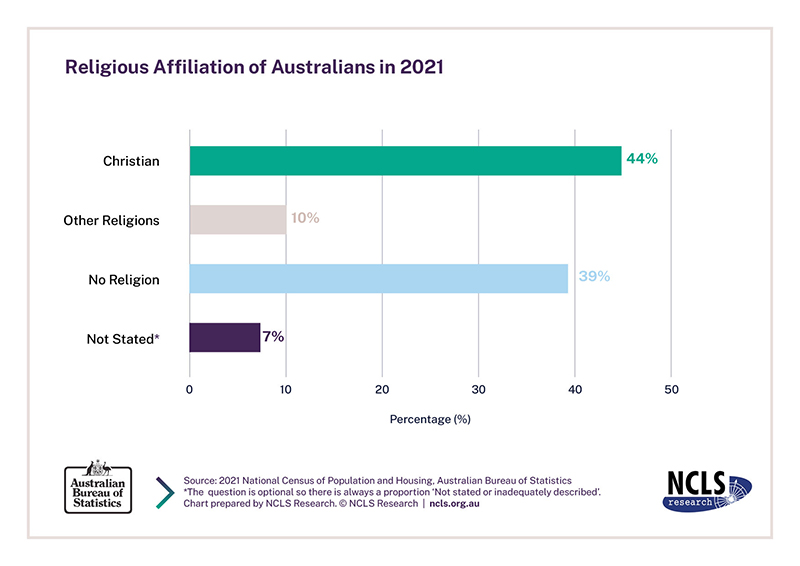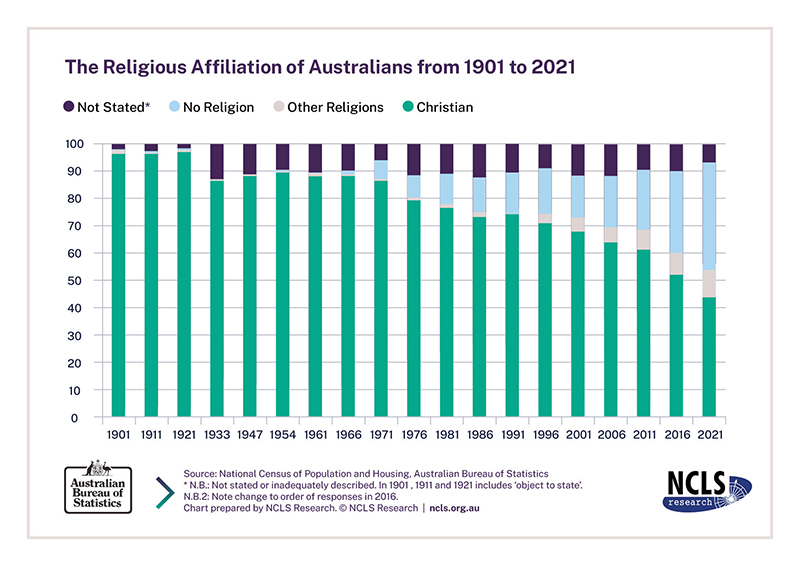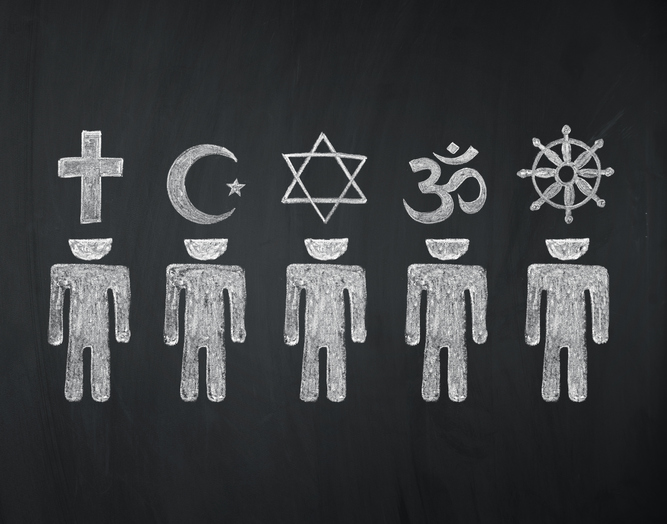Newly released results from the 2021 National Census, which show an increase in Australians ticking the ‘no religion’ box come as no surprise to a leading national commentator on religion.
Dr Ruth Powell is the NCLS Research Director.
“When you choose a religious affiliation in the national Census, it is a statement of belonging or identity,” Dr Powell said .
“When Australians choose ‘no religion’ it tells us about a group for whom it is not an important part of their personal, social or cultural identity”.

The question about religion has been asked in every Census since 1901. It is a voluntary question and in the past few decades around 10 percenr to 12 percent of Australians have not answered it. In 2021 only seven percent did not provide a response.
Christian affiliation declined from 52 percent in 2016 to 44 percent in 2021. This drop is largely made up of declines in Catholic (three percent) and Anglican (three percent) affiliation.
However, to form a view about how ‘religious’ or ‘spiritual’ Australians are, there is more to it. Religious affiliation is only one aspect of the religious profile of Australians. “We know that people who don’t identify as belonging to a particular religious group can still have spiritual or religious lives,” Dr Powell said.
Results from the 2021 Australian Community Survey, run by NCLS Research a few months after the 2021 national Census found that more than half of Australians believed in God or a higher power (55 percent), six in ten prayed or meditated, and two in ten (21 percent) attended religious services at least monthly.

The trend showing an increase in ‘no religion’ has continued since the option was first introduced to the 1971 Census. “Many young Australians do not claim to affiliate with a particular religion as it is not part of their social or cultural identity,” Dr Powell said. “But it does not mean that they are hostile or closed to spiritual life. The evidence from our detailed research shows an openness to spirituality, including the Christian faith – perhaps more than people would expect.”
One in ten Australians affiliate to other religions, such as Hinduism and Islam. Dr Powell noted that this was indicative of Australia’s multicultural migrant population. “In our multicultural country, our new migrant communities tend to be more religious,” she said.
For more information about the census, go to the NCLS website.














1 thought on “‘No religion’ part of ongoing trend, but not whole story”
According the Pew Research Center recent study, the question “God or a higher power” obscures an important trend. “God” implies the God of the bible, who is depicted as a particular being, and often very unpleasant. There is a growing trend to not believe in that God. There is a growing and very wide spread tendency to believe in a “higher power’ which is not a particular identity and usually seen as benevolent or a positive influence in the personal life and the world.
From my experience in Australia there is a similar tendency here. I find that our seminaries and clergy need to encourage more consideration of what THEY mean by “God” and how those loyal to the faith can connect their sense of life with what they read in the Bible or hear preached or taught.